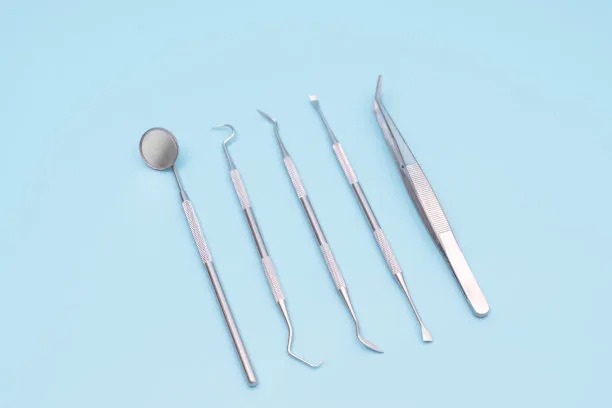Summary: Understanding the need for tooth extraction is crucial for individuals looking to maintain optimal dental health and address future oral care needs. This article delves into several significant aspects of tooth extraction, including the identification of problematic teeth, prevention of further dental issues, the role of tooth extraction in orthodontic treatments, and the impact on overall oral health. By examining these elements, one can appreciate how a seemingly drastic decision, such as tooth extraction, plays a vital role in enhancing long-term dental health and providing a solid foundation for future care.
1. Identifying Problematic Teeth for Extraction

Individuals may require tooth extraction for various reasons, often tied to the health of the dental structure. An obvious sign that a tooth extraction is necessary is severe decay that compromises the tooths integrity. Cavities can lead to pain and infections, rendering the tooth more harmful than beneficial. Recognizing these signs early on can prevent advanced decay and save time, money, and further damage to surrounding teeth.
Another condition that necessitates extraction is periodontal disease. When gums become infected, they can deteriorate and create pockets around the teeth, leading to bone loss. In such cases, dentists often recommend the removal of affected teeth to prevent further complications and preserve the health of adjacent teeth and gums.
Moreover, wisdom teeth often cause issues that prompt extraction. They can become impacted, leading to pain and infection or crowding of existing teeth. Addressing these problems early can save individuals from more extensive procedures in the future.
2. Prevention of Further Dental Issues
One critical advantage of tooth extraction is the prevention of additional dental complications. Leaving a problematic tooth untreated can lead to severe infections, which may spread to other areas of the mouth and beyond. Infections can cause systemic health issues, necessitating even more invasive treatments.
In some cases, extracting a problematic tooth can also help prevent gum disease from escalating. By removing a tooth that is no longer salvageable, you eliminate the source of bacteria and inflammation that could further damage the gum tissue. This proactive approach can save other teeth and maintain oral health over time.
The extraction can also enable better oral hygiene. If a tooth is difficult to clean due to its position or crowding, its removal may lead to improved cleanliness and maintenance for the remaining teeth, reducing the risk of cavities and gum disease.
3. Role in Orthodontic Treatments
Tooth extraction is often a critical component of orthodontic treatment plans. For patients with overcrowded teeth or improper bites, removing one or more teeth can create the necessary space to allow for proper alignment. This process is essential in achieving not just cosmetic improvements, but also functional stability in the long term.
Orthodontists may suggest extraction to achieve optimal results, especially in adults who require correction. The decision is based on comprehensive evaluations, including X-rays and bite assessments, to ensure the best possible outcome for the patients dental health.
In many cases, after teeth are extracted, follow-up orthodontic treatments can lead to significant improvements in overall dental function. The teeth can shift adequately, resulting in a better bite, decreased risk of dental trauma, and improved oral hygiene.
4. Impact on Overall Oral Health
Understanding the broader implications of tooth extraction on overall oral health is vital. Removing a problematic tooth can help mitigate pain and discomfort, allowing individuals to eat, speak, and enjoy life without interruptions caused by dental issues.
The extraction of teeth that threaten the integrity of remaining teeth and gums supports long-term oral health. Healthy gums and a strong jawbone are fundamental for maintaining a functional bite and aesthetic appearance, as well as preventing conditions that could require more extensive treatments in the future.
Moreover, a successful extraction often leads to improved self-esteem. Many individuals feel more confident with a healthier smile free from decay or infections. This boost can promote better oral hygiene practices, contributing to lasting dental health.
Summary:
The importance of understanding tooth extraction extends beyond the immediate need for a dental procedure. It is an integral aspect of dental health that influences long-term oral care. From recognizing problematic teeth and preventing future complications to aiding in orthodontic treatments and supporting overall health, the implications of extraction are significant. Embracing this knowledge can lead to a proactive approach to personal dental care, ensuring better health outcomes.
This article is compiled by Vickong Dental and the content is for reference only.
Vickong Dental
Vickong Dental is a large medical group established in Hong Kong in 2008 by professors from well-known medical universities in Guangdong and Hong Kong, as well as medical doctors from key national '985' universities (including Master's supervisors and senior professors). The chain of branches brings together expert dentists with PhDs and Master's degrees from Hong Kong and Mainland China, committed to providing high-quality dental treatment.
"Vickong Dental Practices the University Motto of 'Healing and Serving Society,' with a Stable Operation for Sixteen Years. It Has Been honored with Hong Kong Enterprise Leaders's Choice,' and is a Global Trusted Implant Center for the Nobel Implant System. Recommended by Hong Kong Metro Broadcast and Guangdong Television, it Serves Customers from Over Thirty Countries and Regions, Gaining the Trust and Favor of Citizens from the Guangdong-Hong Kong-Macau Greater Bay Area and Surrounding Cities.

Thousands of customers' unanimous praise
The most recognized and highly recommended dental service by customers in the Guangdong-Hong Kong-Macau Greater Bay Area
We Ensure You Receive Detailed Care and Attention Here
Hong Kong standards, Shenzhen prices, Your Trusted English-speaking dentists

Vickong Dental Medical-Grade Instrument Disinfection Process
Vickong Dental Medical-Grade Instrument Disinfection Process

Vickong Dental Chain: A Warm and Comfortable Environment for Treatment






Appointment Hours

Q&A
Why choose Vickong Dental?
Vickong Dental practices the university motto 「Medicine to Benefit Society」, with each branch bringing together highly qualified dentists with doctoral and master’s degrees from Hong Kong and the Mainland, and has maintained seventeen years of steady operation。Recipient of 「2024 Hong Kong Enterprise Leaders Brand」, 「2025 Hong Kong Enterprise Leaders Brand」, a Nobel Biocare Global Trusted Implant Center, and a brand recommended by Metro Radio Hong Kong and Guangdong TV。
To date, we have served customers from more than thirty countries and regions,earning exceptionally high word-of-mouth recognition and trusted recommendations from residents across the Guangdong-Hong Kong-Macao Greater Bay Area and surrounding cities
We have eight major branches in Zhuhai、Shenzhen,and a consultation and service assurance center in Hong Kong,so you can book a free consultation at any time for any questions,which is very reassuring.
If I do not accept the quotation after the CT scan, will I be charged??
No! As long as the actual treatment has not started, you will not be charged any fees.
Will there be any additional charges during the treatment process?
No, there won’t be any additional charges. Before treatment begins, we will clearly explain the treatment plan and its corresponding fees. Only after the patient agrees and signs the consent form will we proceed with the dental service.
Can I pay in Hong Kong dollars?
Yes. Vickong Dental accepts payment in Hong Kong dollars. The amount will be converted based on the exchange rate of the day, and the applicable rate will be clearly communicated to you in advance.
Can I reschedule my appointment at any time?
Yes. Please contact us via **WeChat** or **WhatsApp** as early as possible, providing your original appointment time and details, along with your preferred new date and time slot for rescheduling.













